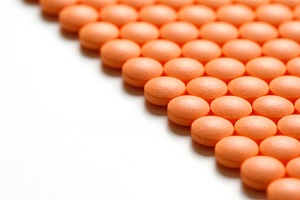Dicetal

Trade name: Dicetal
Generic name: Pinaverium bromide
Preparation: tablet
Uses for IBS:
Dicetal is an antispasmotic. It stops or decreases painful spasms by relaxing the smooth muscles of the intestines. It does this by antagonizing calcium channels, thus decreasing the amount of calcium that enters the muscle cell. In order for a muscle to contract enough calcium, it must enter the cell to cause an action potential. Dicetal decreases how much calcium enters the cell, thus preventing an action potential and muscle contraction (spasms). It is not available in the U.S., but can be ordered from Canada and other countries. Dicetal is used to treat symptoms of IBS, especially the diarrhea-predominant IBS. It is less useful or can even exacerbate symptoms for those with constipation-predominant IBS because it can stimulate cramping and promote constipation.
Dicetal is administered in tablets (50mg and 100 mg). It should be taken with meals and the tablets should not be chewed or crushed, but swallowed whole with a generous amount of water. The user should avoid lying down after ingestion because it may irritate the esophagus.
Contraindications
The list at this time is not extensive. The only true contraindication is known allergy or hypersensitivity to pinaverium. There have been no human trials, only animal models. With more studies, the list of contraindications will be more complete. Manufacturers have cautioned that Dicetal can cause esophageal irritation, so users with esophageal reflux or other esophageal problems should not use it before discussing it with their physician. Although no birth defects have been reported with animal models, Dicetal has not been declared safe for pregnant women. In addition, no studies have been done showing safety in lactating mothers, so it should also be avoided when nursing.
Adverse reactions
The most common reported adverse reactions are gastrointestinal and include abdominal pain and/or fullness, nausea, constipation, heartburn, distension, and diarrhea. Other adverse reactions are headache, dry mouth, drowsiness, dizziness, and skin allergies.
